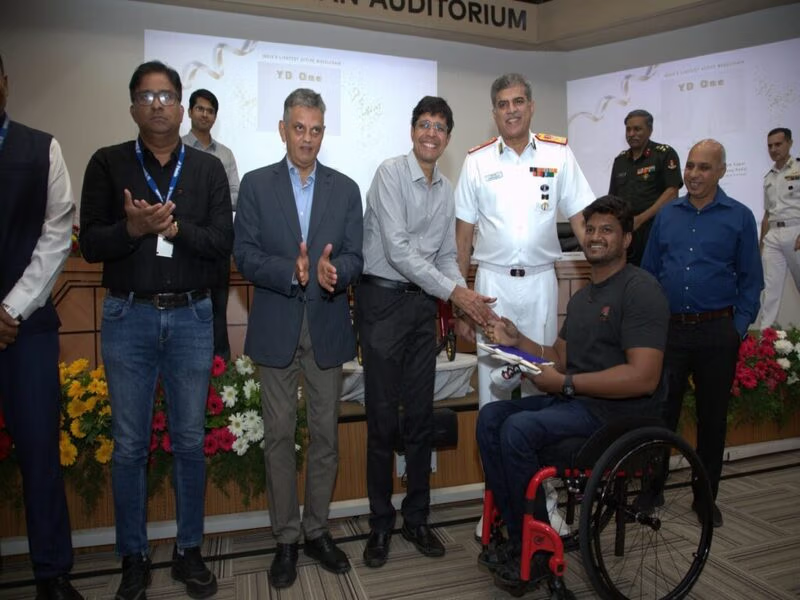The Indian Institute of Technology (IIT) Madras has launched YD One, a precision-engineered mobility solution touted as India’s lightest wheelchair, weighing just 8.5 kilograms. The innovation is set to redefine accessibility and mobility for people with disabilities, experts said.
YD One is India’s first indigenously designed monotube rigid-frame active wheelchair, built to meet global performance and design benchmarks. Currently, most wheelchairs in the country weigh around 17 kg.
“With YD One, we have achieved 50 per cent weight reduction,” said Prof. V. Kamakoti, Director, IIT Madras. “The product was developed using a unique carbon fibre and aluminium composite, combining mechanical and metallurgical research expertise.”
ISO-Certified And Priced Competitively
Certified by ISO standards, YD One is priced at ₹75,000. In comparison, similar lightweight models imported from global manufacturers cost upwards of ₹2.4 lakh, making this a breakthrough in affordable assistive technology.
The wheelchair will be available commercially starting tomorrow.
Designed For Speed, Mobility, And Accessibility
The reduced weight offers significant user advantages—quicker movement, easier rotation, and the ability to lift and store the wheelchair with minimal effort. This makes it highly practical for daily use, especially in cars, auto-rickshaws, and public transport.
“YD One also enables participation in events like the Paralympics, enhancing sports accessibility,” Kamakoti said, adding that the device’s affordability could support deeper rural penetration if government schemes back its adoption.
Innovation Backed By Startup Ecosystem
The development of India’s lightest wheelchair is part of IIT Madras’s broader push toward innovation-driven entrepreneurship. The institute currently supports 103 startups and aims to launch 100 new startups annually, with the goal of reaching 1,000 startups by 2032.
Kamakoti emphasized the potential impact of the Cabinet-approved Research, Development and Innovation (RDI) scheme, noting its importance in nurturing indigenous innovation and building a Viksit Bharat by 2047.
“As our honourable Prime Minister envisions, India is on track to becoming a product and startup nation. IIT Madras will be a key beneficiary of the RDI initiative,” he said.
With YD One, IIT Madras achieves a critical milestone in India’s assistive technology landscape—one that combines engineering excellence, cost-effectiveness, and inclusive design for a growing population with mobility challenges.
–Input IANS





